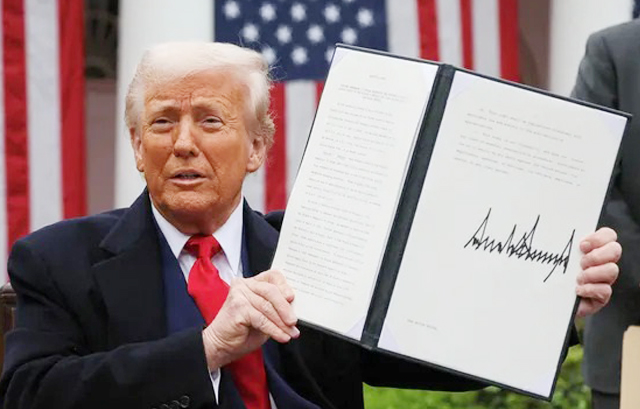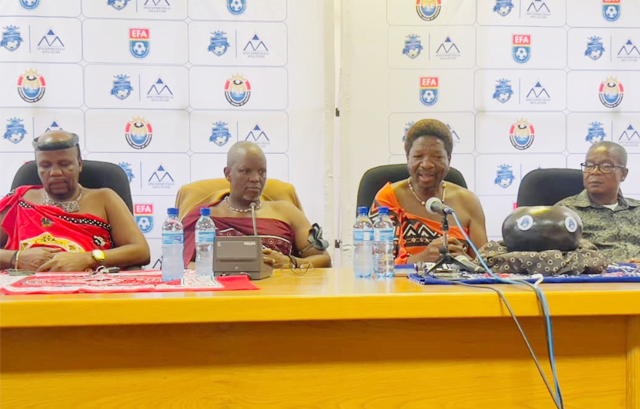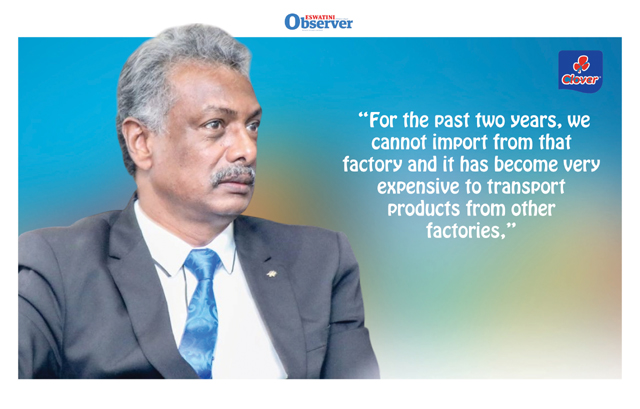By SITHEMBILE HLATSHWAYO | 2025-01-27
A National Public Procurement Policy in Eswatini is essential for several compelling reasons.
Firstly, it would enhance transparency and accountability in government spending, ensuring that public funds are utilised for the greatest benefit of all citizens.
This comprehensive procurement policy would guarantee that local businesses have equitable access to government contracts, stimulating economic growth and job creation within the community.
By encouraging fair competition, promoting best practices and supporting the development of a robust supplier base, the policy would create a vibrant economic landscape.
Establishing a National Public Procurement Policy in Eswatini would leverage these principles to improve governance and public service delivery.
Such a policy would standardise procurement processes, promote transparency and enhance accountability, ensuring that public resources are used efficiently and effectively.
In general, public policy is fundamental to governance as it establishes the frameworks within which governments and organisations operate to address societal needs and challenges.
Effective public policy provides direction for decision-making, resource allocation and the implementation of programs that aim to enhance the quality of life for citizens.
It serves as a mechanism for promoting social justice, ensuring accountability and fostering community engagement, ultimately contributing to stronger and more resilient societies.
In the Kingdom of Eswatini, the realm of public procurement remains a complex tapestry woven from both structured practices and informal norms. Despite the absence of a formal Public Procurement Policy, the dynamics that shape how government entities, parastatals, state-owned enterprises and municipalities engage in procurement can inadvertently create a de facto framework that impacts local businesses and communities.
Therefore, the establishment of a formal policy is not just beneficial but necessary for promoting sustainable development and equitable growth.
Eswatini Obsever has engaged with ESPPRA Chief Executive Officer (CEO) Vusi Matsebula who unpacked the current landscape of public procurement and he had the following to say:
The Current Landscape of Public Procurement
Public procurement in Eswatini is primarily executed by central government ministries, parastatals and municipalities through varying levels of adherence to regulations, frameworks and informal practices.
In the absence of a standardised national policy, the multitude of decisions made by the different procuring entities often leads to inconsistent implementation. There are however, commonalities in procurement practices that can be recognised as collective norms that unofficially serve as a policy guide.
The overarching principle that seems to emerge from these practices is the promotion of local business involvement in public procurement. Local companies, particularly those owned by Emaswati, frequently argue that they should be receiving preferential treatment in public procurement opportunities.
The arguments include that this would bolster the local economy and ensure that government contracts benefit the citizens of Eswatini. Whilst this is a fact that cannot be refuted, the efficacy and fairness of these practices warrant careful examination.
The Enforcement of Public Procurement Practices
While parliament passed the public procurement act in 2011 and subsequently the public procurement regulations in 2020, within the different procuring entities the decisions that guide procurement practices and their enforcement may lack rigor.
For instance, procurement processes are often subjected to varying interpretations of the rules, leading to discrepancies in how contracts are awarded.
Many government agencies and procuring entities emphasise the need for transparency and fairness, yet the absence of a cohesive national policy can create loopholes that hinder equal access for all potential bidders.
Municipalities may follow the lead of central government procurement practices, but the autonomy granted to local councils often results in distinct processes. For example, while government departments may align more closely with guidelines set by the ministry of finance, local councils tend to implement procurement practices that reflect unique local considerations.
This divergence poses challenges for national coherence and can create barriers for businesses seeking to navigate the procurement landscape.
The Treatment of Set-Asides for Eswatini Nationals
One of the notable practices within the procurement landscape is the concept of set-asides for businesses owned by Emaswati.
There is a widespread acknowledgment of the need to empower local entrepreneurs, particularly in a country where unemployment remains a significant challenge. In such situations, the Government strategies often prioritise local suppliers in contract allocation, aiming to stimulate the economy from the ground up.
However, on a broader scale, it is important to note that the implementation of set-asides internationally tends to lack consistency. Reports indicate that while certain contracts are specifically allocated to local firms, others appear to favour foreign companies, often due to concerns about quality, capacity, or competitive pricing.
This discrepancy raises questions about the true intent and effectiveness of set-asides in fostering local business growth.
Moreover, the lack of clear criteria for determining which companies qualify as ‘local’ can lead to a dilution of the intended benefits. Shell companies, foreign-backed enterprises and large corporate entities may sometimes exploit regulatory ambiguities to gain access to contracts reserved for small local businesses.
This situation underscores the urgent need for a transparent and widely understood categorisation of eligibility criteria concerning local businesses.
Prioritising Women, Youth, and Persons with Disabilities in Procurement
In recent years, there has been a growing recognition of the importance of inclusivity in the procurement process.
The government has acknowledged the need to prioritise the participation of marginalised groups such as women, youth, and persons living with disabilities. However, translating this recognition into actionable practices remains a challenge.
While there are initiatives aimed at empowering these groups—such as designated fund allocations, training programmes, and capacity-building workshops—the impacts on procurement opportunities have yet to be fully realized. Procurement practices often lack specific quotas or reserved contracts for these groups, leading to an uneven playing field.
Engagement with stakeholders is essential to ensure that these initiatives are effective.
Stakeholders, including local businesses, non-governmental organisations, and civil society, should collaborate with government entities to collect data and conduct awareness campaigns. More engagement leads to better understanding the unique challenges faced by these groups, and developing tailored solutions can ensure that public procurement effectively serves as a tool for social equity and inclusion.
The Quest for Formal Policy vs. Informal Practices
The absence of a formal Public Procurement Policy poses significant risks. Without clear guidelines, procurement decisions may be swayed by favouritism or lack of transparency. This leads to disillusionment among local businesses that may feel overlooked or marginalised in the procurement process.
A national policy would provide clearly defined rules and procedures, which could mitigate corruption and enhance accountability. It would also ensure uniformity across various public entities, thus enabling a fair and competitive procurement environment.
Moreover, it could facilitate better communication between government and the business sector, ultimately fostering an atmosphere of trust and confidence.
Additionally, formalising policies that explicitly include considerations for gender, youth, and disability could further enhance the diversity and inclusivity of the procurement process.
By establishing clear quotas and guidelines, the government can send a strong message regarding its commitment to empowering all Eswatini citizens and ensuring equitable access to opportunities.
Way Forward
To create a more inclusive and equitable procurement system, the public procurement stakeholders must work together to advocate for a robust Public Procurement Policy.
This policy should prioritise the participation of local businesses and ensure that practices reflect the diversity of the population — particularly women, youth, and persons living with disabilities.
Key elements could include:
g Development of the National Public Procurement Policy and the review of the Public Procurement Legislation:
This will assist in giving a clear framework on how as a country we want to treat the issue of Public Procurement for all businesses to benefit from getting contracts from central government ministries and government agencies, parastatals, state-owned enterprises and municipalities.
g Clearly Defined Eligibility Criteria: Establishing transparent standards for determining local businesses and marginalised groups eligible for set-asides.
g Training and Capacity Building: Offering programs to equip local businesses with the skills needed to compete effectively, particularly focusing on vulnerable groups.
g Regular Monitoring and Evaluation: Implementing a system that continuously assesses the impact of procurement practices on different segments of society and adjusts strategies as necessary.
g Public Engagement: Encouraging dialogue with all stakeholders to collect feedback and insights that can inform procurement policies.
g Commitment to Transparency: Ensuring that procurement decisions are documented, publicly available, and accessible to keep all participants accountable.
While Eswatini currently lacks a Public Procurement Policy, the practices observed across government, parastatals and municipalities reflect a set of unwritten norms that shape the procurement landscape.
Despite the good intentions behind supporting local businesses and marginalised groups, the current system has considerable shortcomings that need addressing.
By implementing a formal procurement policy, the government would not only strengthen the economic base of Eswatini but also leverage procurement as a mechanism for social change.
Ensuring fairness, equity and opportunity will ultimately benefit all citizens, fostering a sustainable future for the country.
As the push for a more equitable procurement environment continues, it's essential for all stakeholders to recognize both the challenges at hand and the potential for transformative change. Let us elevate the conversation surrounding procurement in the country and forge a path towards inclusivity, transparency, and collective progress.
Like the discussions in the previous articles, this also forms a baseline on the issue of policy in public procurement which we will need to discuss in a year’s time to see if the country would have made any progress.
share story
Post Your Comments Below

United States President Donald Trump has announced sweeping new import taxes on all goods enterin...

INGWENYAMA Cup Chairman Prince Hlangabeza has called for violence-free games and urged teams to a...

Clover Swaziland has called upon minister of finance to reconsider the current taxation structure...
An outpouring of community support has resulted in weighty contributions towards the fune...
All material © Swazi Observer. Material may not be published or reproduced in any form without prior written permission.
Design by Real Image Internet